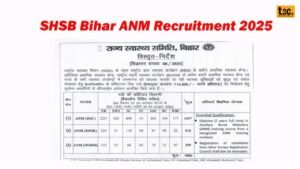CBSE Approves Open-Book Exams for Class 9 from 2026-27! What Does it Mean? Find Here Why?

You will all be shocked after hearing a groundbreaking step towards revolutionising the assessment system in schools. The Central Board of Secondary Education (CBSE) finally cleared the fog and decided to approve the open-book exams for Class 9 students starting from the 2026-27 academic session.
The predominant aim of this decision is to shift the focus from rote learning to conceptual understanding. However, this move is in line with the National Curriculum Framework for School Education (NCFSE) 2023 and the National Education Policy (NEP) 2020. Such a policy highlights the need for competency-based learning and assessment.
Through this post, I have delved into explaining the details of the CBSE decision, the benefits and challenges of open-book exams, and what this means for students, teachers, and the education system as a whole. Let’s take a deep dive into the below given detailed information manner.
What are Class 9th Open-Book Exams?
During the examination, while answering questions, Class 9th Open-Book Exams are a type of assessment where students are allowed to refer to textbooks, class notes, and other resources. The main purpose of open-book exams is to test students’ ability to apply knowledge, think critically, and solve problems, rather than just recalling facts.
Through this, all the students will use resources to find relevant information, analyse it, and provide well-structured answers. However, this promotes an environment of promotes deeper learning, conceptual understanding, and higher-order thinking skills in them. If you are one of those who will be going to give cbse boards exam in the 2026-27 session, then you will develop essential skills such as research, analysis, and critical thinking, which are crucial for success in academics and beyond.

Not only this, but also, the CBSE’s introduction of open-book exams for Class 9 students is a step towards making assessments more meaningful and effective, and preparing students for the challenges of the 21st century. Before proceeding further, take a look at: UPPSC Staff Nurse Result 2025 Declared: Check Your Scorecard Now!
Key Highlights of the CBSE Decision
- Implementation from 2026-27: Open-book exams will be introduced for Class 9 students from the 2026-27 academic session.
- Pilot Study: A pilot study was conducted to examine the feasibility and effectiveness of open-book assessments, which showed teacher support despite some performance challenges.
- Standardised Sample Papers: CBSE will develop standardised sample papers to ensure question quality and promote critical thinking.
- Framework for Open-Book Exams: A framework will be created for open-book exams to be part of internal exams in Class 9, which schools can adopt if they choose to.
Benefits of Open-Book Exams
- Reduced Exam Stress: Open-book exams can help reduce exam stress by focusing on application and critical thinking rather than rote memorisation.
- Real-World Application: These exams encourage students to apply knowledge in real-world contexts, making learning more meaningful and relevant.
- Conceptual Understanding: Open-book exams promote conceptual understanding and problem-solving skills, which are essential for success in the 21st century.
Do not miss out on reading on: WBJEE 2025 Result Date Deferred Again: What You Need to Know!
Challenges and Opportunities
- Teacher Training: Teachers need to be trained to frame questions that go beyond direct recall and to guide students in navigating resources and applying knowledge contextually.
- Student Preparation: Students need to develop skills to effectively use resources and apply knowledge in open-book exams.
- Assessment Framework: A well-designed assessment framework is essential to ensure that open-book exams test the intended skills and knowledge.

Impact on Students and Teachers
- Shift in Learning Approach: Open-book exams will encourage students to focus on understanding and applying concepts rather than just memorising facts.
- Change in Teaching Methodology: Teachers will need to adapt their teaching methodology to focus on developing critical thinking and problem-solving skills.
- Assessment and Evaluation: The assessment and evaluation process will need to be revised to accommodate the new format of exams.
Cast your eyes on: UP Board Compartment Exam 2025 Results Announced: Check Your Scores Here!
Conclusion
The CBSE’s decision to introduce open-book exams for Class 9 students is a significant step towards promoting conceptual understanding and critical thinking. By shifting the focus from rote learning to application and problem-solving, CBSE aims to prepare students for the challenges of the 21st century.
As the implementation begins, it’s essential for teachers, students, and parents to understand the benefits and challenges of open-book exams and work together to make this. With proper planning and support, open-book exams can be a valuable tool in promoting student learning and achievement.
Stay tuned on our website, as if any official information pops up, we will update you in minutes! If you want all the latest updates on time, then join our student community on WhatsApp!
Choose the right career yourself by booking personal guidance from professionals on Mytagapp.com







